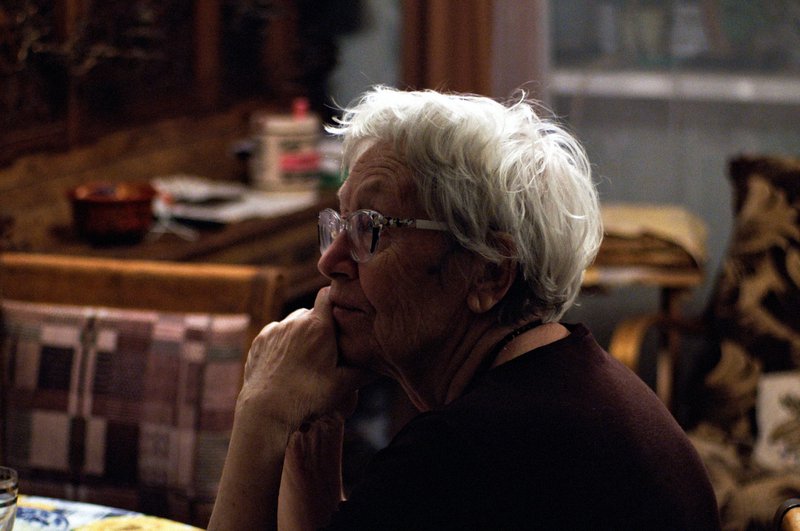Facing the challenges of aging can be daunting to you or your loved ones. The many physical and mental changes can make it gradually harder to perform daily activities.
Senior case management can help you maintain independence, receive the comprehensive and coordinated care you need, and live with comfort and dignity. A case manager will act as your right-hand assistant, offering support, guidance, and advocacy as you work through the complex healthcare system and seek the assistance you require.
This article will give you a better understanding of what case management is. Specifically, you’ll learn the importance of utilizing case management services for the elderly and the steps you need to take to find the perfect case manager for you or your loved ones.

What Is Case Management?
Case Management is about providing older adults with the proper service plan to highlight and satisfy their unique needs. It’s a collaborative process that consists of different stages meant to avoid the duplication of services, reduce confusion, and ensure that older adults receive the most appropriate care and support. Case managers play the critical role of communicating with you, your family, and health care providers to coordinate the delivery of social and medical services.
The process usually starts with a care assessment, which includes an evaluation of your health status, social support network, and financial resources. Then, case managers will help generate a service plan and work with you and your family to apply for suitable programs and services.
Your case manager will continue to reassess your needs and adjust the service plan as necessary. Throughout the process, case managers will give ongoing support to you and your loved ones, addressing any concerns or questions that may arise and providing information and guidance on community resources and other support services.
In the following section, we’ll explore the value of case management services.
The Benefits of Case Management for Seniors and the Elderly
According to a study published in 2013, community-based case management (CBCM) has significantly reduced the number of hospitalizations among local seniors. In the study, the adoption of CBCM resulted in a reduction in emergency department visits, the overall length of hospital stays, and the number of hospitalizations during the first two years. The frequent visits of nurse case managers were recognized as a major contributor to these positive results.
Although there are limitations to this report, the findings emphasize the benefits of senior case management. Here are several more advantages to using case management services:
- Coordination of care and services: Duplicate services, costly hospital stays, and fragmented care can all be prevented when case managers assist in organizing the many medical and social services that seniors need.
- Improved quality of life: Seniors can improve their quality of life by receiving assistance with daily tasks, accessing community resources, and obtaining emotional support through case management.
- Enhanced access to resources and support: Case managers assist the elderly in accessing various resources and support, including health care, home health services, and financial aid.
- Increased sense of independence and control: By providing older adults with the resources and support they need to manage their health and well-being, case managers help the elderly maintain a sense of independence and control over their lives. This helps to promote a more positive outlook on life.
- Better health outcomes: Case management can lead to better health outcomes, including improved symptom management, fewer hospital admissions, and better overall health and well-being.
What Does Case Management Look Like?
Case management allows you and your family to have a dynamic and organized approach to health care. With a case manager by your side, you can collaborate more efficiently with your medical team and other service providers that you need.
The process of senior case management typically includes these steps:
In-Depth Screening and Assessment
In this stage, a case manager will review your medical history and examine the current care you are receiving. This assessment is not limited to your current medical situation; it also includes your financial and social conditions. A thorough evaluation will address any barriers and gaps found in your ongoing service plan.
Once your case manager analyzes the findings, the appropriate services and programs for your circumstances will be determined. The case manager will ensure that you receive timely services for your medical and social needs by efficiently locating and coordinating with medical professionals and social services providers.
Also, case managers carefully monitor the seniors who they suspect are being abused, neglected, or exploited. They provide constant assurance and support so that you can continue living comfortably and safely.
Valuable Application Assistance
It can be difficult for you or your loved ones to apply to several programs and benefits that match your needs and goals. Your case manager will be right with you during every step of the application process. They will provide information, assist with all of the paperwork, and answer your questions and concerns, as well as those of your family.
When you need to attend meetings and other appointments related to your required services, your case manager can accompany you and promote your rights and well-being.
Development of a Service Plan
Developing a complete service plan is one of the most critical stages in senior care management. The service plan is a physical document that highlights health care and social care objectives, monitoring plans, and expected patient outcomes.
Your case manager will work closely with you, your family, medical professionals, and social workers to learn about your healthcare needs, self-care goals, and other social necessities. That information will then help create a tailored service plan that advocates for your whole well-being.
As part of case management services, the case manager will also monitor your progress and adjust the service plan to address any changes in your needs or circumstances.
Proactive Referrals
After carefully assessing the contents of your service plan, your case manager will collaborate with all types of service providers, thereby relieving you of having to assume all those responsibilities yourself. The services enlisted for you include anything that may be relevant to your personalized service plan.
You might need assistance in obtaining medical equipment, for example, or maybe there are legal issues that you have to settle. Whatever it may be, your case manager will direct you to the proper resources.
Consistent Support
Furthermore, developing your service plan will not mark the end of your case manager's support for you and your loved ones. They will continue to be with you and monitor your progress. Evaluating your evolving needs and goals as you age is a priority, and they will ensure appropriate adjustments.
How to Get a Case Manager
It can be difficult to accept the fact that you or your loved ones require a case manager. But having one by your side can make all the difference. This section will provide steps to secure the best case manager for you.
Step 1: Identifying the Need for a Case Manager
The first step in getting a case manager is to identify the need for one. The need may arise when you or your loved one is facing a chronic health condition, has multiple healthcare providers, or is navigating a complex healthcare system. You may also consider a case manager if you or your loved one is struggling to access needed services or is feeling overwhelmed by caregiving demands.
Step 2: Choosing the Right Type of Case Manager
Once you have identified the need for a case manager, the next step is to choose the right type of case manager. There are many different types of case managers, including:
- Geriatric care managers, who specialize in the care of older adults and have expertise in this population's specific challenges and needs.
- Healthcare case managers, who focus on the medical aspects of care and can help coordinate medical treatments, manage medications, and navigate the healthcare system.
- Social service case managers, who focus on older adults' social and emotional needs and can provide support, resources, and advocacy.
Choosing a case manager with the expertise and experience to meet your specific needs is essential.
Step 3: Finding a Case Manager
Once you have determined the type of case manager you need, the next step is to find a case manager. There are several ways to find a case manager, including:
- Contacting local organizations: There may be local organizations, such as aging centers or an Area Agency on Aging, that can provide case management services or connect you with case managers in your area.
- Checking with your insurance provider: If you have health insurance, your insurance company can connect you with a case manager or provide information on available case management services.
- Searching online: Many online resources can help you find case managers, including websites such as the Institute on Aging.
Step 4: Questions to Ask Before Finding a Case Manager
Before you find a case manager, here are some questions to consider:
- What is your experience and expertise in the area of case management?
- How do you approach assessment and service planning?
- What services do you provide, and how do you coordinate care with other providers?
- What is your fee structure, and what is included in your services?
- Can you provide references from other clients or healthcare providers?
Taking the time to ask these questions and find the right case manager can make all the difference in the care and support you receive.
Access the Benefits of Case Management
Accepting the challenges that come with aging can be difficult. But once you or your loved ones acknowledge the need to reach out to other professionals for assistance, it can make all the difference.
To sum up, senior case management ensures that you live with dignity, independence, and comfort and enjoy the best possible quality of life. At the Area Agency on Aging of West Central Arkansas, our case managers will guide you through different services and programs and help you decide what is best for your needs and goals.
Learn more about the case management services available to you and where to find them here.

I like that you said that one of the difficult moments of having an elder is to provide the best healthcare for their safety. After moving to our current area, my cousin told me that my uncle told him he wanted to have a peaceful retirement solution, but I don’t have any idea what would be the best living option for safety. I appreciate you helping me learn more about aged care services for effective planning. I’ll be sure to consult a trusted aged care service for more information about the available options for retirement.
I have an adult daughter with schizophrenia and keeps going off her medication. I need someone who’s able to assist me with keeping her on medication. Without it she’s mean angry unreasonable. I’m 63 years old. I need help.
Thank you for sharing. It is very informative and helpful for assisting elderly people.
I am in need of a worker I am homeless have been for going on 8 years now staying with my play brother at 1330 so Olive St Apt 203 LA CA 90015 and I am waiting on my low-income housing to come in which I don’t know how long it may be.but right now am going through a lot of things thats sitting me back and I truly need some help with my life right now before it’s to late.am feeling a Little suicidal homicidal schizophrenic and other disorder in my life right now I lost all my family members I’m on social security SSI right now that’s not what I wants I need my own place a resident.
Trying to find somewhere to live before my lung surgery.Im own 24 hour oxygen. Can I please get some help. I just need somewhere to safe and clean to
Live